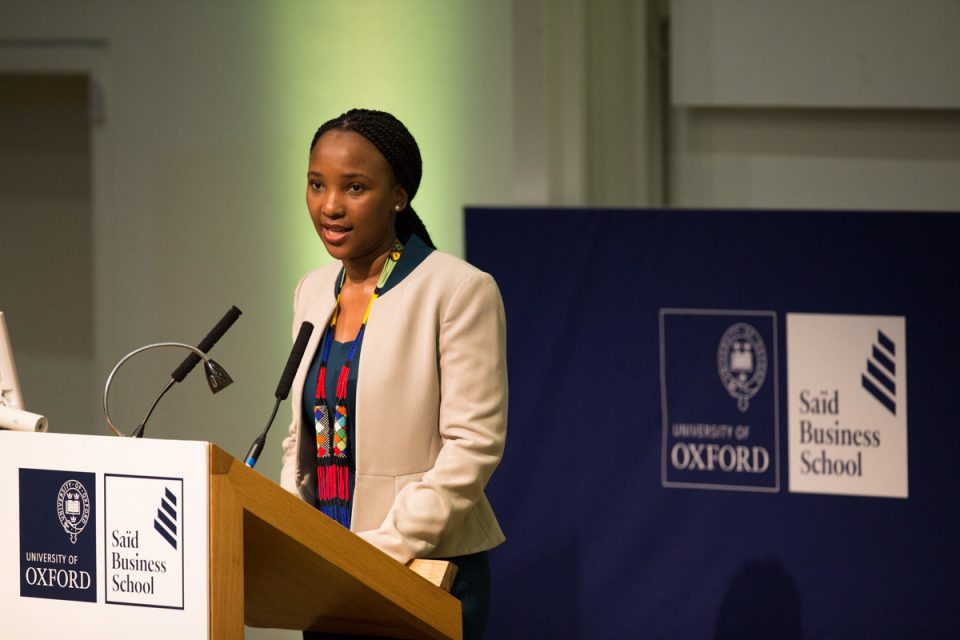
Highlights from Oxford Business Forum Africa 2019
The Oxford Business Forum Africa 2019 was a huge success for Africa.
The vision of an Africa unified by free trade took a major leap forward in March 2018, with the historic signing of the African Continental Free Trade Area (AfCFTA) agreement by 44 African countries. Only four more African nations need to ratify the AfCFTA for it to come into force which will be the largest free trade agreement since the formation of the World Trade Organization 70 years ago.
By creating a single market for goods and services in Africa with free movement of people and investments, AfCFTA has the potential to boost intra-Africa trade and act as a catalyst for economic growth and attract investments from both within Africa and the world. The United Nations Economic Commission for Africa estimates that by removing tariffs, intra-African trade could increase by 52% and may double with further removal of non-tariff barriers. If successfully implemented, the agreement will create a single African market of over 1.2 billion people with a total gross domestic product of over $4 trillion.
‘Single Market, Global Outcomes’ is the theme of this year’s Oxford Business Forum Africa which will consider the implications of the AfCFTA agreement on the development and ease of doing business across Africa. When examined independently, many African countries may not be economically viable and attractive to global market players. However, under the single market framework of the AfCFTA, the continent’s prospect for global production, value chain management and consumption capacity rises.
About Oxford Business Forum Africa 2019
Hosted annually by Saïd Business School’s Oxford Africa Business Alliance, the Forum brings together distinguished leaders from top companies, innovative start-ups, government, and civil society from across Africa with thought leaders, students, and alumni from Oxford University to discuss business in Africa.
From focused discussions on the infrastructure, energy and policies needed to support integrated trade across Africa, to exploring how the AfCFTA will impact investment opportunities and technological innovation on the continent, the Forum will provide a vibrant platform for thinking about Africa’s future.
Convening over 350 delegates and a diverse range of speakers, the Forum will offer unrivalled insight into business on the continent from the boldest innovators and decision makers in Africa. A gala dinner, held at Balliol College, will open the Forum on Friday 8 March, followed by the full day Forum on Saturday 9 March at Oxford Saïd.
Prominent political and business figures that are confirmed as speakers include:
• Zainab Shamsuna Ahmed, Honourable Minister of Finance, Federal Republic of Nigeria
• Aigboje Aig-Imoukhuede, Chairman, Africa Initiative for Governance
• Dr Mukhisa Kituyi, Secretary-General, United Nations Conference on Trade and Development (UNCTAD)
• Arunma Oteh, Academic Scholar, University of Oxford. Former World Bank Vice President and Treasurer
• Dr Amy Jadesimi, Managing Director, LADOL
• Dr Andrew Nevin, Co-founder of Binkabi and Co-Founder of i-Kabin of Nigeria (iKoN)
• Erik Hersman, Founder, iHub Nairobi
• Dr Bitange Ndemo, Chairman, Blockchain and Artificial intelligence Taskforce at Government of Kenya
• Carlijn Nouwen, Partner at Dalberg Global Development Advisors
• Professor Landry Signé, distinguished fellow at Stanford University’s Center for African Studies
Tammy Brophy, Chair, Oxford Africa Business Alliance said: ‘The Forum is a vibrant platform which raises awareness of the business opportunities that exist on the continent, explores challenges faced by entrepreneurs and investors doing business in Africa and offers a prognosis for future growth. We are proud to have had over 11% of each Oxford MBA cohort hailing from Africa in recent years, which is significantly higher than other business schools, where the average is 2%. By learning directly from leading business people working in Africa, the Forum focuses on understanding the interconnected nature of business, the diversity of markets and consumers in African countries, and the innovative approaches business adopt to maximise their impact.’
Rajiv Daya, who is studying the full-time MBA at Saïd Business School and is Chair of the Forum said: ‘At a cultural and academic level, we as Africans tend to promote a narrative of unique national identities; yet at a corporate and regulatory level, we talk about the benefits of regional expansion and integration. The Forum provides an inclusive platform to bring these two worlds together through the lens of regulators, academics, scholars, entrepreneurs and business leaders. This is particularly exciting for me as we promote an interactive and integrated dialogue between current and future leaders who seek opportunities to contribute to a more prosperous African continent.’

